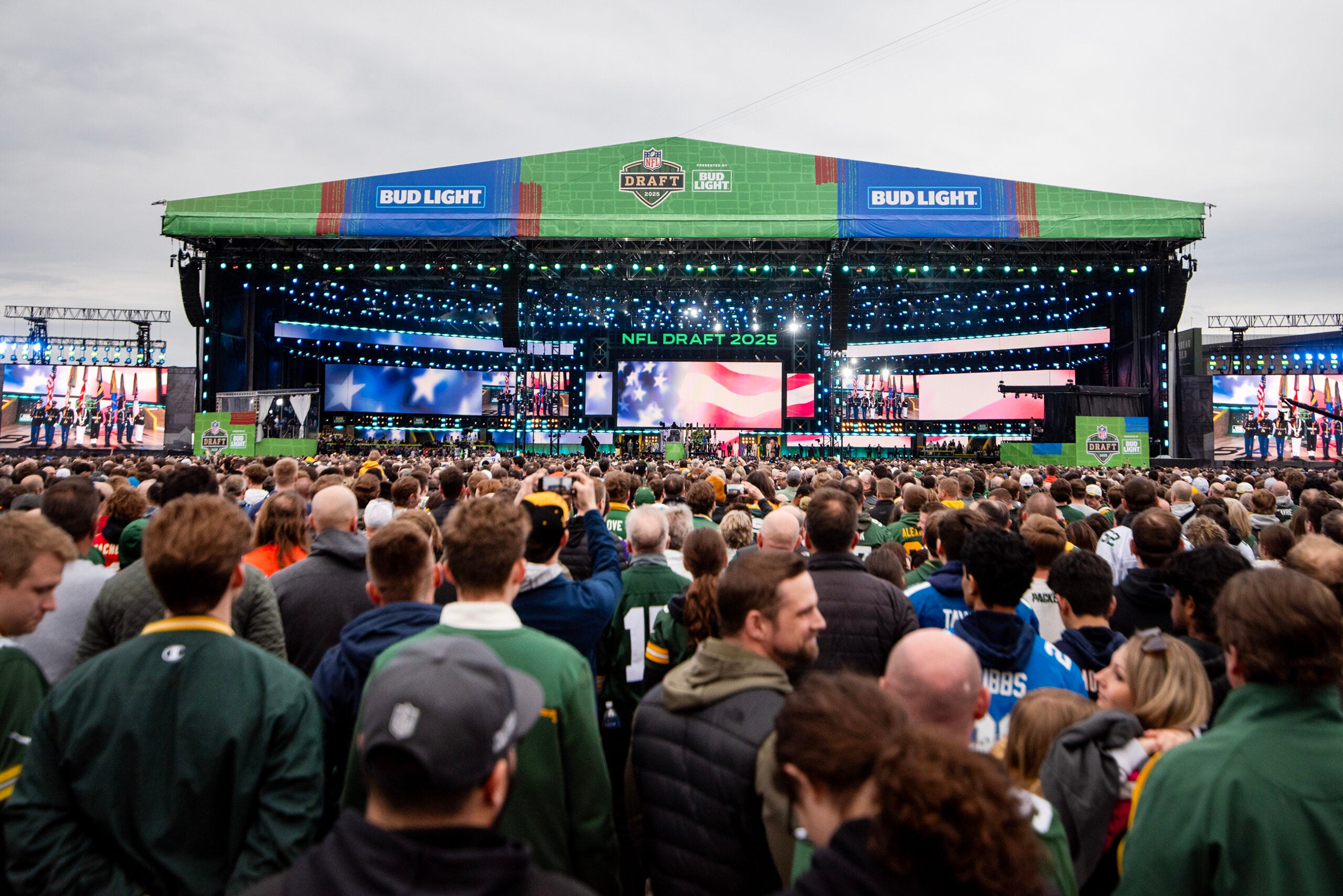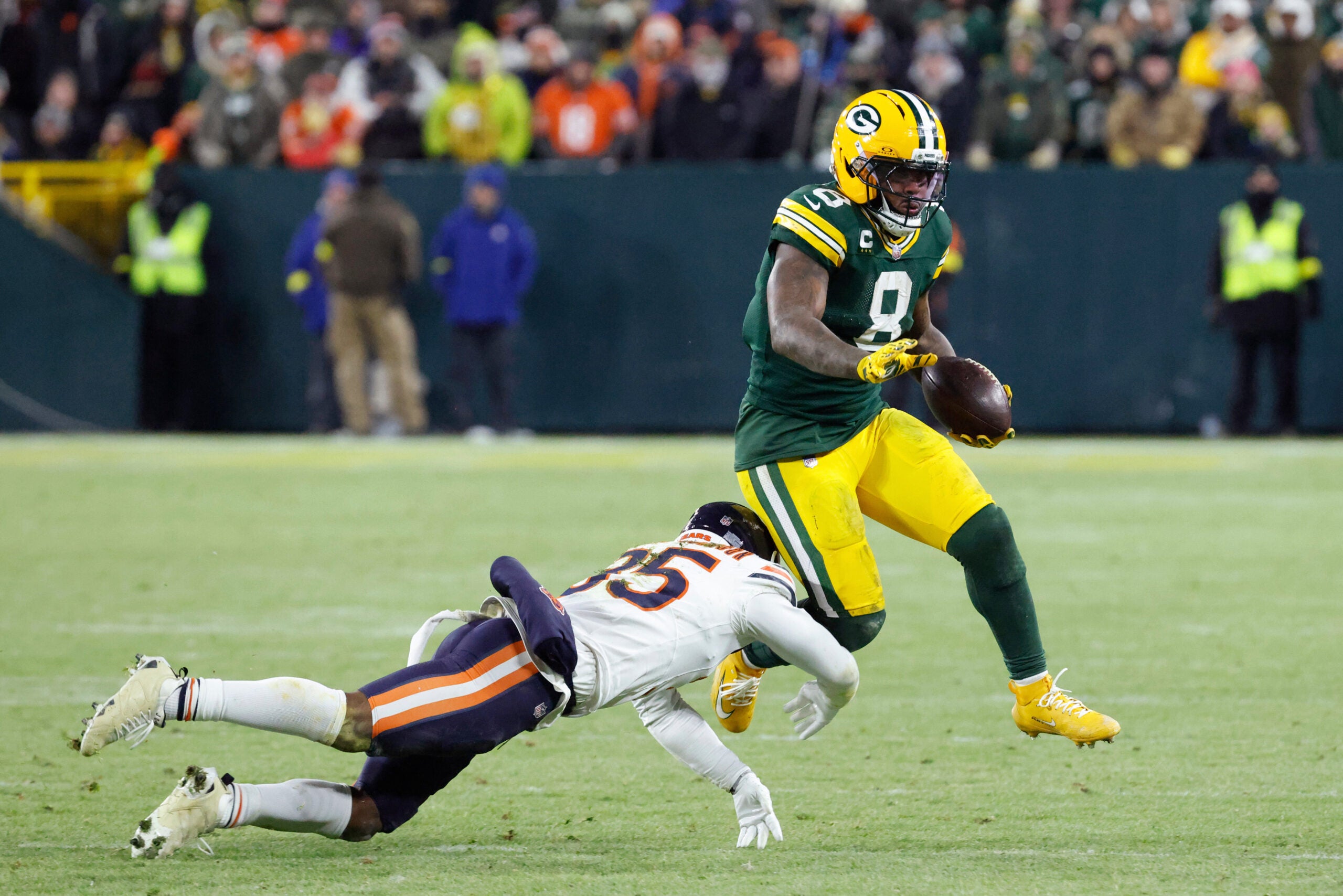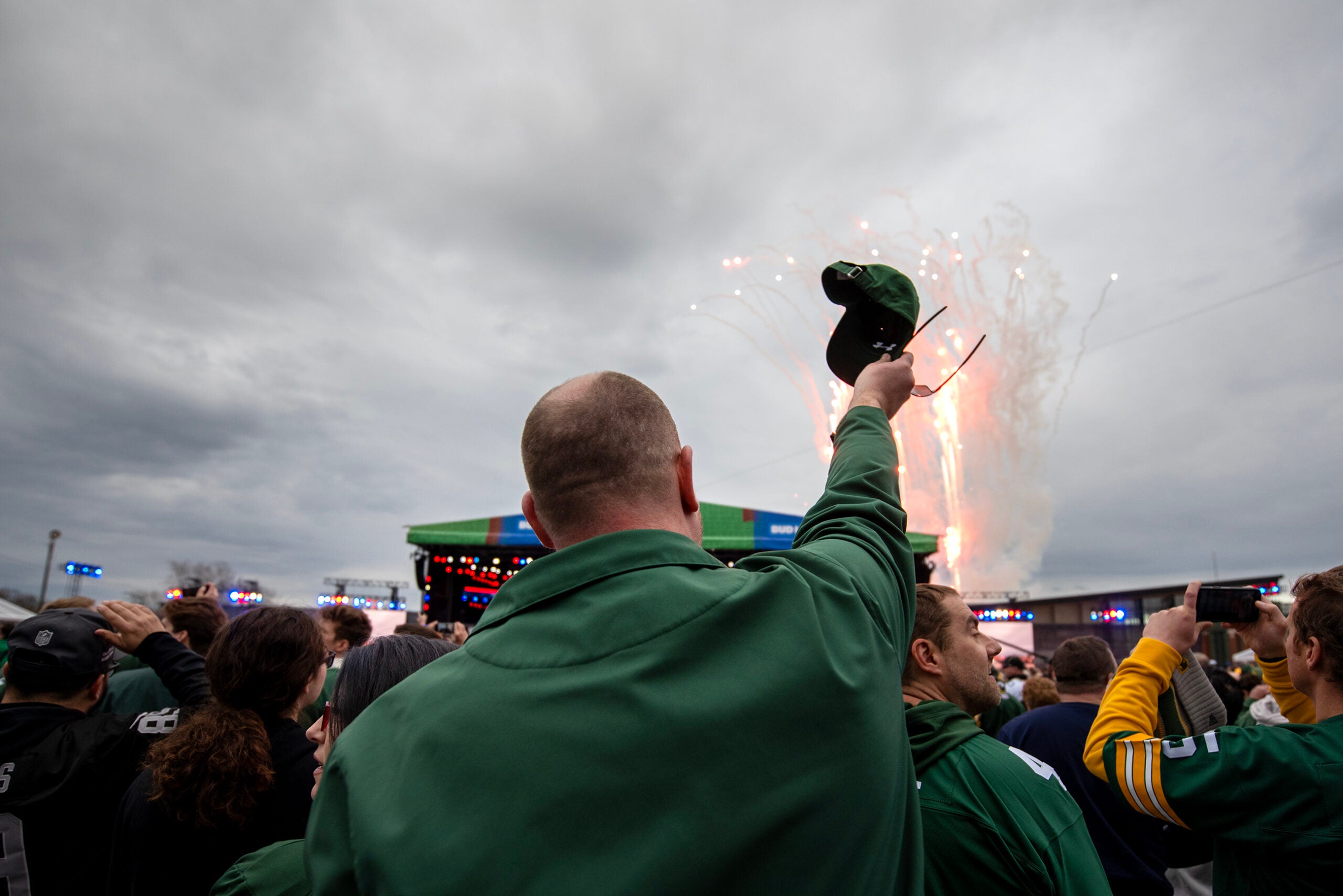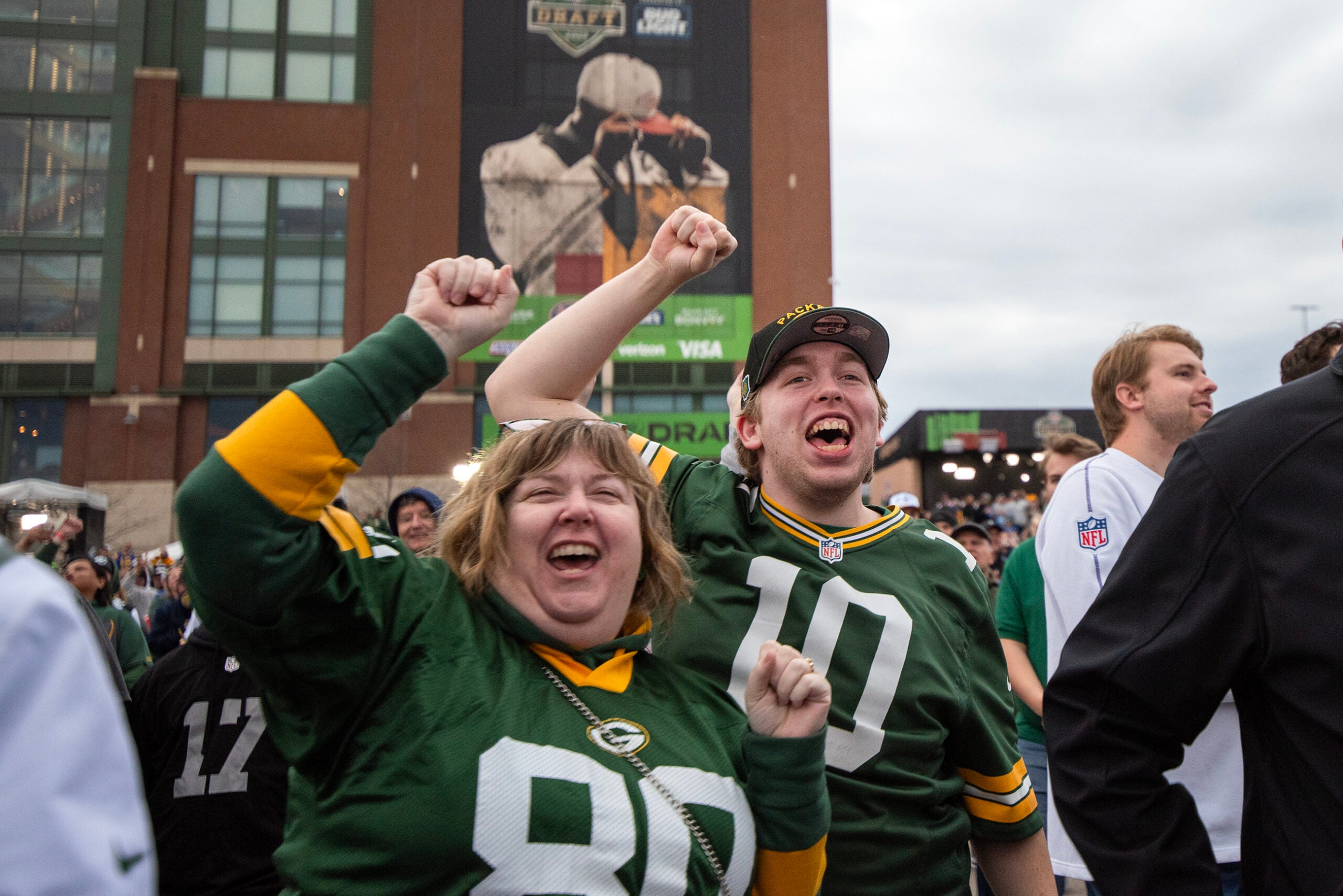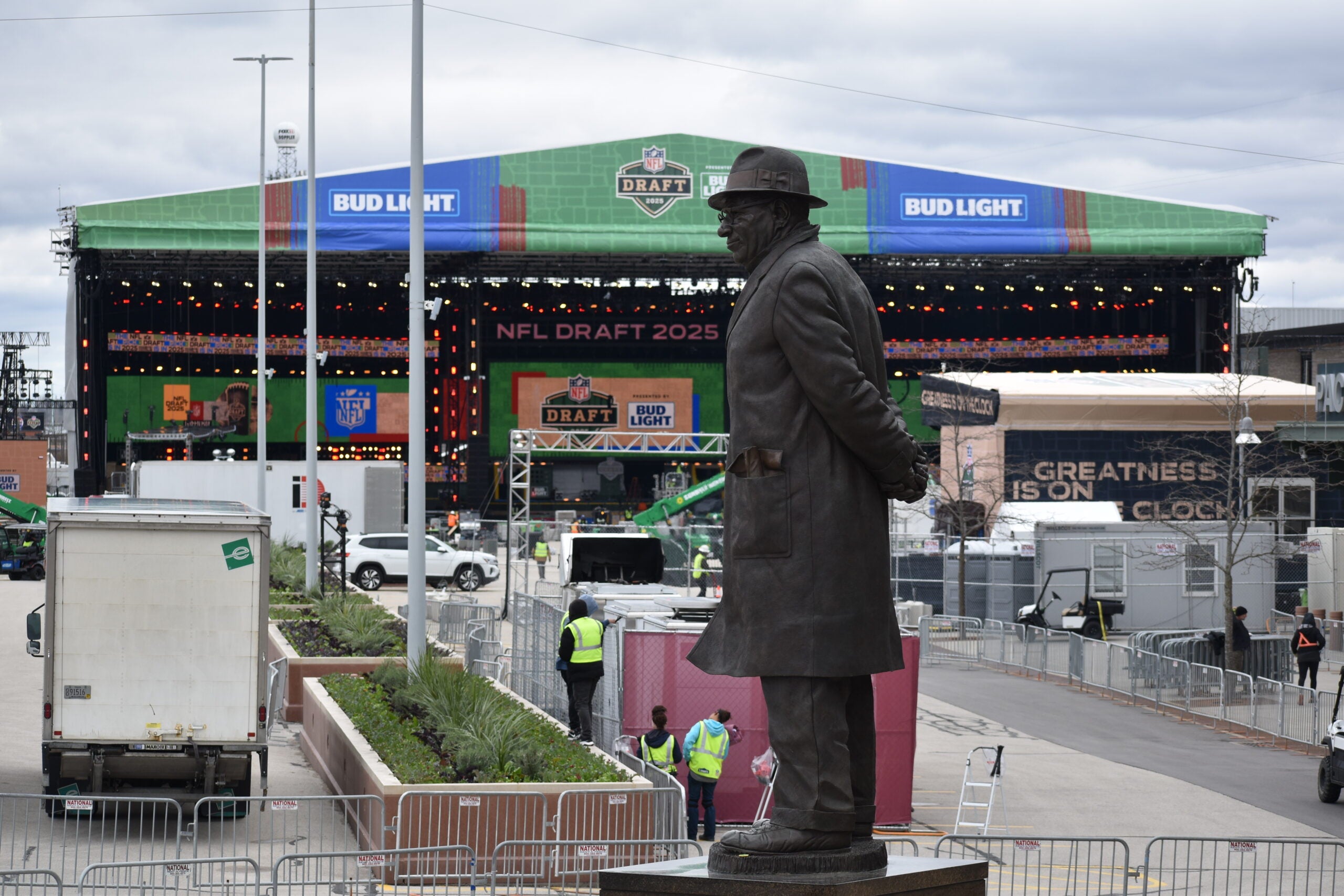On the final day of the NFL draft at Lambeau Field, a league executive issued a public apology to the wider Green Bay community.
“I got it completely wrong,” Jon Barker, senior vice president of global event production and operations for the NFL, told reporters Saturday. “I thought 250,000 people would come to this draft over three days, and you have completely blown that number out the door.”
According to the NFL, 600,000 people attended the draft at Lambeau Field over three days — more than double pre-event forecasts and roughly six times Green Bay’s population. Organizers said before the draft that more than 50 million people were expected to watch the event on television.
News with a little more humanity
WPR’s “Wisconsin Today” newsletter keeps you connected to the state you love without feeling overwhelmed. No paywall. No agenda. No corporate filter.
For Brad Toll, president of Discover Green Bay, one of the highlights of the weekend was when he was told Thursday that the draft had hit capacity on opening night.
“We were so relieved to see that because you dream about being able to do this for your community, and to have it come off the way it did was just unbelievable,” Toll said at a press conference Monday.
He said the Discover Green Bay brand made around 4.25 billion impressions from the draft, which would have cost about $40 million in advertising. Discover Green Bay expects to have data on the 2025 NFL draft’s economic impact in June.
The Green Bay-area community also received glowing reviews from many of the out-of-state visitors who attended the draft, including from national media personalities who were in Green Bay covering the event.
Ashwaubenon Village President Mary Kardoskee said she couldn’t be more proud of all the collaboration that went on between local governments and private entities to pull off an event of that scale.
“It was just amazing how everybody came together,” she said.
In a statement Monday, Green Bay Mayor Eric Genrich praised Packers President Mark Murphy for “ignoring the naysayers” and believing in his decade-long vision of bringing the draft to the community.
“As the league’s smallest city, we heard all the skeptics, but we didn’t let them distract us,” Genrich said. “This has always been ‘the little city that could’ and this last week we showed the world who we are and what we are capable of, and we all proved Mark right.”

The city of Green Bay estimates that its municipal bus service saw a 250 percent increase in ridership during the draft. Communities across the state had shuttle services to the event, and out-of-state visitors also flew into Wisconsin for the festivities.
As of Monday, some of the streets around Lambeau Field were still closed as crews worked to take down the draft campus built around the stadium parking lot and parts of the Titletown District. The Packers and the NFL plan to donate materials used for the draft to local organizations Tuesday morning.
From Thursday through Saturday, local law enforcement reported that within the event grounds, one person had to be arrested and eight had to be ejected.
Outside the event itself, Ashwaubenon Public Safety Chief Tom Rolling said there were two arrests in the entertainment district next to the draft campus and “a few extra citations” were issued in that area as well. But he said it “wasn’t anything we didn’t expect.”
Businesses near Lambeau Field reported being especially busy during the draft, but the effect wasn’t as pronounced for those farther away from the stadium.
Brian Johnson, president of the Green Bay City Council and CEO of the nonprofit business group On Broadway, said roughly 60 to 70 percent of the people who attend any given NFL draft come from the region where it’s being hosted. That means they come for the event itself, and typically head right home afterward, he said.
Johnson said community events, like the Draft City Music Fest, helped bring people to parts of the city beyond the stadium district, but the economic impact was most concentrated near the event grounds.
“There’s just not enough visitors for everybody to become a millionaire overnight,” he said. “Sometimes maybe expectations were misaligned with reality, and, if anything, we probably could have taken a more proactive approach about having those conversations with businesses.”
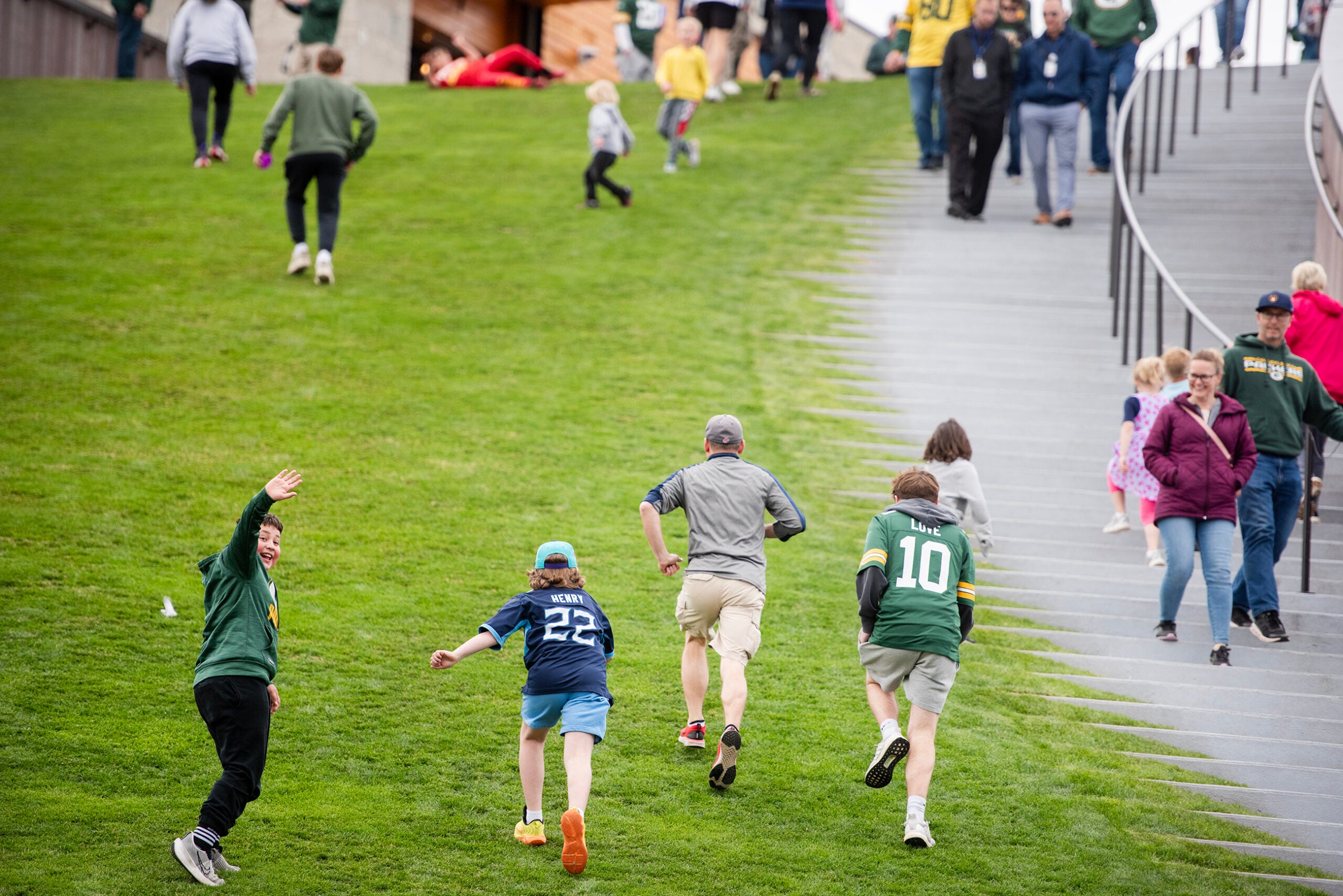
Overall, Johnson said he’s proud of the way the community shined during it’s time in the national spotlight.
“We really stepped up and created a memorable experience,” Johnson said, “not only for the visitors here, but the folks that are planning on the other end, including the NFL, who have really, I think, taken notice and said: ‘Hey, maybe Green Bay is a city we ought to continue to consider long into the future.’”
Wisconsin Public Radio, © Copyright 2026, Board of Regents of the University of Wisconsin System and Wisconsin Educational Communications Board.

